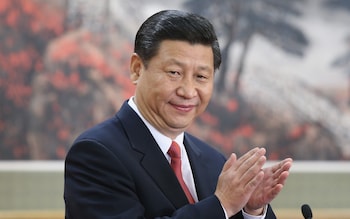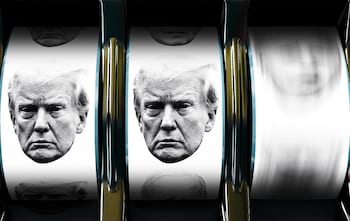
Germany risks a sharp economic downturn if Donald Trump is elected US president and follows through with high tariffs on international goods, analysts have warned.
Mr Trump’s pledges to levy a tax of 60pc on all imports from China and 20pc on those from other nations would hammer Germany’s car and pharmaceutical industries, according to the Ifo Institute.
Exports of cars to the US would crash 32pc, the Ifo said, while pharma sales would fall 35pc. The scale of the crunch would deliver a permanent blow to the GDP of a nation which has already struggled to grow at all since the pandemic.
German exports to the US would drop by more than €33bn (£27bn) per year, the Ifo added.
The warning contributes to the sense of crisis in Germany, where the central bank has warned the economy “could stagnate or decline again” this quarter.
The statistical office has not published full data on industries including retail since the spring, and Olaf Scholz’s Social Democrats are struggling to hold back the far-Right AfD in regional elections.
Overall, German exports to the US – which totalled €220bn (£184bn) last year, or more than one-tenth of all German exports – would drop by almost 15pc.
At the same time Mr Trump’s tariffs would have a knock-on effect for German exports to China, which would fall by almost 10pc, the Ifo predicted.
Lisandra Flach, of the Ifo, said: “If Trump is re-elected and starts a new trade war with China, Germany, as an exporting nation, would suffer greatly.”
The situation would be even worse if China retaliated with its own protectionist measures against the US, the Ifo said.
The one saving grace would be that American protectionism would push some German sales to Mexico and Canada, as well as making US goods and services less competitive on the global stage, it added. As a result overall exports would drop by an estimated 2pc.
Prof Flach said the long-term impact of Mr Trump’s proposed tariffs “would be larger than the effects we have calculated for Brexit, with a permanent decrease in real GDP by 0.25pc”.
She added: “The reason is not only lower exports to the US, but also lower exports of intermediate and final goods to China, as the Chinese economy would suffer large losses from the 60pc tariffs as announced by Trump in his campaign.
“Since the US and China are the main markets for German exporters outside the EU, Germany is hit by losses in both markets.”
It comes on top of an already dire economic performance since Covid. GDP in the eurozone’s largest economy has barely grown at all since the pandemic, with Germany’s mighty industrial centres hamstrung by the loss of cheap Russian energy and weak demand from key customers in China.
The slump in Germany’s manufacturing sector deepened in September, with output falling from 42.8 in August to a 12-month low of 40.5, according to S&P Global’s HCOB Flash Germany purchasing manager’s index (PMI).
An index score of below 50 indicates that business activity is shrinking, so the further fall signifies a deepening slump among German factories.
Manufacturing firms shed staff at the fastest pace in 15 years, excluding the pandemic, after new orders collapsed.
The figures followed the news that car manufacturer Volkswagen will close some of its German factories for the first time in history.
Cyrus de la Rubia, chief economist at Hamburg Commercial Bank, said: “Optimism is something of the past. Manufacturers are downright depressed about their future activity, with expectations for the coming year plummeting.
“The slump in manufacturing is beginning to spill over into Germany’s otherwise resilient services sector … A technical recession seems to be baked in.”
Overall, Germany’s private sector economy shrank from 48.4 to 47.2, according to the composite PMI.
German GDP will shrink by 0.2pc this quarter, after falling by 0.1pc between April and June, Hamburg Commercial Bank predicted.
In France, the end of the Olympics triggered a massive slump in activity, with the composite PMI plunging to 47.4 in September, down from 53.1 a month earlier.
Tariq Kamal Chaudhry, economist at Hamburg Commercial Bank, said: “This confirms the suspicion that the service sector surge in August was an Olympics-related anomaly, which has now dissipated.”
France is also grappling with a major manufacturing downturn, which Mr Chaudhry warned would be worsened by the country’s political deadlock.
“Politically, the situation remains unstable following the snap elections and the appointment of Michel Barnier as prime minister, with no clear parliamentary majority in place to push through the significant economic reforms that could revive the industry,” he said.
Disclaimer: The copyright of this article belongs to the original author. Reposting this article is solely for the purpose of information dissemination and does not constitute any investment advice. If there is any infringement, please contact us immediately. We will make corrections or deletions as necessary. Thank you.



